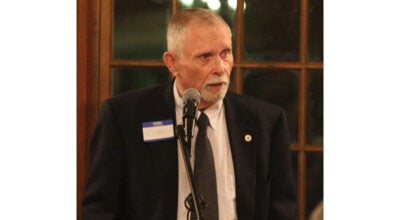Are you really saying it again?
Published 7:39 pm Sunday, May 16, 2021
|
Getting your Trinity Audio player ready...
|
In another life, I did a lot of youth work. In my college and seminary years, I did two summers of youth internships back in the golden era when everyone had a big group. It wasn’t anything for us to have 80 or 100 kids show up for an event. Four more summers I was on the faculty of a denominational youth camp on a large, national scale. We would do 12 weeks during the summer and have 700 kids each week.
The most common refrain I heard from the teenagers was, “Why don’t we ever get to study Revelation?” Though I didn’t choose or write the literature we used, I get why they wanted to. Revelation had the exciting imagery with all the code words. It had the spiritual equivalent of shiny, fast-moving objects. Lots of smoke, lights and water, with the suggestion of ghosties, ghoulies, hobgoblins and things that went “bump” in the night. I always said the same thing in response. “Why don’t we get the simple stuff down first, like the gospels. Let’s practice things that Jesus said were important. Then maybe when we do — we can move on to the Revelation.”
Adults are no different. Teach or preach John for too long and I’ll begin to hear someone complain about all the talk of “love.” You know what my response would be? “Why don’t we get the simple stuff down first, like the gospels. Let’s practice things that Jesus said were important.” Like loving one another.
This week, we looked at John 15: 9-17. We were in Jesus’ important Farewell Discourse. There are 2 reasons Jesus gives for saying what he does: that his joy would be in us and that joy would be more complete. But also to remind us to love one another. In fact, his reminder is that if we don’t love each other, we don’t abide in him.
So, our reaction could be “Are you really saying it again?” He didn’t stop there, though. Jesus goes into something here that is rather new. He uses the word “friend.” Gail O’Day of the Candler School of Theology says that modern Christianity, that’s you and me, tends to place words like sin, redemption or atonement. We talk of justification, repentance or being born-again. These are at the center of conversations about what it means to live out the offer of salvation made available through the life and death of Jesus Christ.
“Friendship” doesn’t figure prominently in the theological world, and it doesn’t pop into our heads readily. It is a secular word, it seems to us maybe. Yet Jesus here doesn’t use the agape word for love that we hear in other places in the New Testament. He uses phileo instead, the Greek word for friend or brotherly/sisterly love. What does it mean to be “friends” in the NT understanding and in Jesus’ usage? Well, keep your seat belts buckled.
One scholar says that the way in which we cast friendship now is not exactly the way that first century greco-roman culture necessarily would have. This scripture in John 15 conveys that believers were Christ’s loved ones. That they were understood to love within a community of followers. It suggested a deeply relational interdependence rather than a stratified or hierarchical system. A mutual affection. Here, he also features his “love commandment,” that you would lay down your life for each other.
Did you know that in first century Greek and Roman cultures, friendship was an important part of the democratic ideal? No less than Aristotle said this. “It is true the virtuous man’s conduct is often guided by the interests of his friends and of his country, and that he will if necessary lay down his life on their behalf…” Did you hear anything that sounded familiar just then?
It was Jesus himself here who said that his definition of love and friendship was to lay down one’s life for one’s friend. Compare that with Judas’ betrayal and Peter’s denial. Contrast that with how hard it was over the last year just to get people to simply wear their masks during a global pandemic because it was asking too much of them, and it was an invasion of their personal rights.
The bar Jesus set was high. Before we trumpet our belief, and before we call Jesus our friend, John 15: 9-17 should get a fresh chance to speak into our faith and our living.
DR. CHARLES QUALLS is senior pastor at Franklin Baptist Church. Contact him at 757-562-5135.





